When I was a child I was often scolded for not finishing my dinner with the words: “There are kids starving in Africa, finish your meal, you’re not throwing that away.” And I often thought to myself how the food I was throwing out could actually go to someone else in need, and the logistical impossibilities of such a feat plagued me for years.
Now one Swedish entrepreneur whose company is based in Malta has come up with an ingenious way of doing just that, by merging the commercial and charitable in an utterly unique way.
But then again, Rickard Gillblad has made a living out of finding simple solutions to difficult problems. His businesses, Romy Foods and Torus Pak, are revolutionising Europe’s ready meals markets with patented packaging technology and an innovative hub distribution system and are providing thousands of ready meals across the continent on a daily basis.
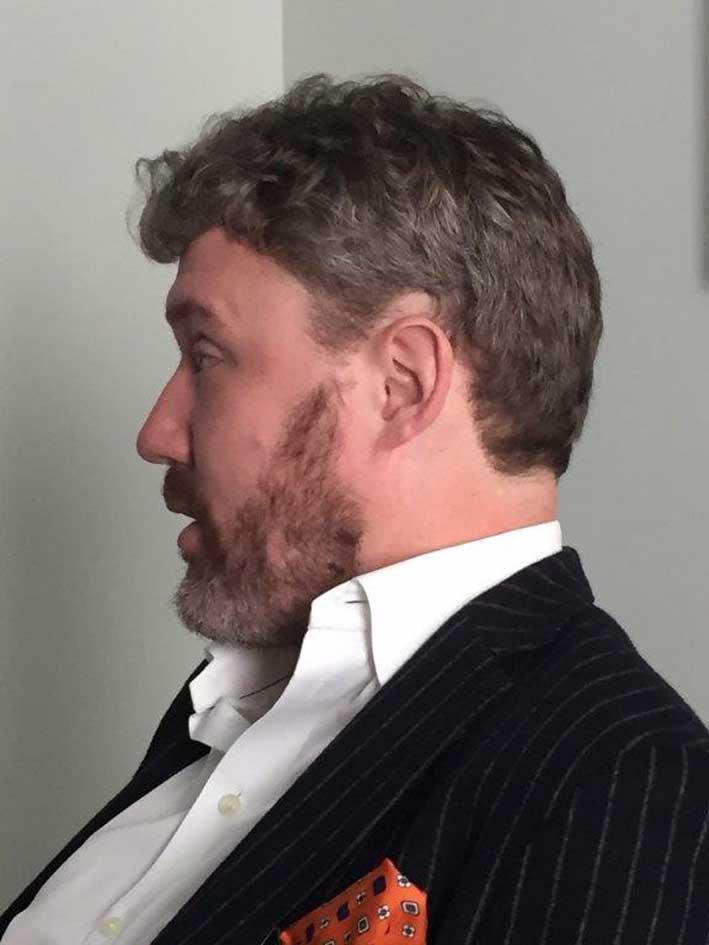
Now Mr Gillblad has set his sights on helping to tackle the problem of famine in Africa, having developed a unique corporate social responsibility initiative that sees his company providing one meal for an African schoolchild for every meal he sells in Europe.
The ‘A Meal for a Meal’ programme was launched last month and has, as of yesterday, already provided over 77,500 meals for schoolchildren in Jinja, Uganda.
It was back in 2013, Mr Gillblad recalls, that the concept first came about. “I was looking at a terrible map that showed the amount of food wastage in European countries compared with famine and malnourishment levels in African countries.
“I started thinking: ‘What if I could take the excess food from up there and move it down there?’”
By that time, Mr Gillblad had become an expert on food wastage through his businesses and was well versed in studies that had shown that 650 grammes of food is initially required for every 450 grammes of food that makes it onto a plate. As much as 200 grammes per plate is typically lost on damage to produce during transport, during the production process and on other costs such as storage and natural wastage.
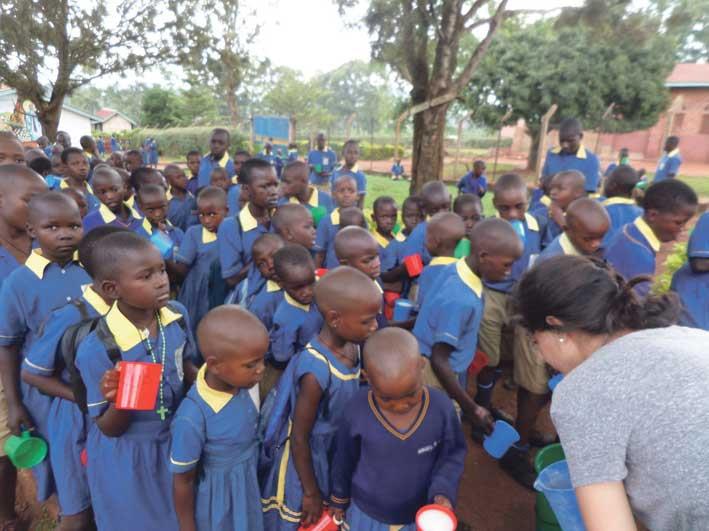
Mr Gillblad’s unique ready meals freezing and hubbing concept, however, delivers significant savings on such wastage – so much so that the company is cutting food waste across its operations by an average of 180 grammes per meal.
“After seeing that map, I had this idea that I wanted to find a simple method of transposing those savings. Plus, the United Nations says that to bring a person in Africa out of food poverty requires 180 grammes of proteins and carbohydrates a day, which happens to be the exact same amount that we are saving on each meal we produce.
“So the idea of A Meal for a Meal was born. We created a database here in Malta – halfway between Europe and Africa – that gathers all the data of all the meals we sell in Europe and for every meal we sell in Europe, we ‘owe’ a meal to somebody who needs it in Africa.
“By eliminating 180 grammes of food waste and food loss per portion as per the company’s Zero Food Waste Vision, monetary and carbon footprint savings are created. What could be more natural than to reinvest some of those resources in doing exactly that: transposing the savings from eliminated food waste into providing food where it is needed most?”
But rather than simply donating funds saved from eliminating wastage from the food production chain, Mr Gillblad’s concept has taken a different route – that of purchasing the actual produce, which is then handled until end delivery to schoolchildren by SOS Malta.
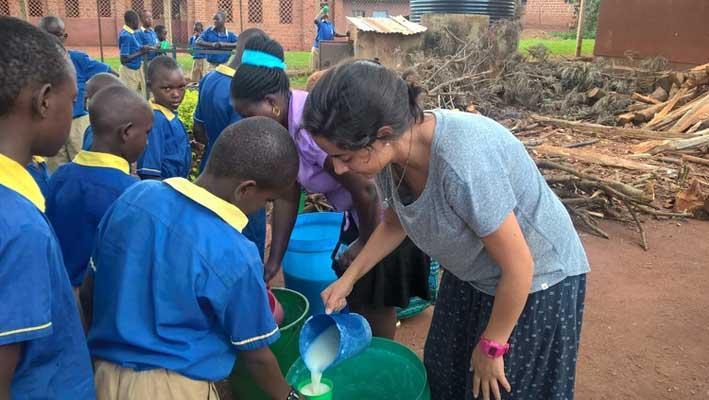
“I honestly don’t believe in all those campaigns where the consumer is asked to simply donate money. There is no guarantee where that money is going and it creates room for corruption. We, on the other hand, are buying the raw materials and we need to keep tabs on that. We know exactly what is being spent and where it is going.
“We get the receipts for exactly how many grammes of maize, sugar and other raw produce have been purchased, which means we can track what is happening and we know exactly how much we have bought.
“We have chosen to work with SOS Malta because it is a reliable partner for this type of collaboration, and it also carries out quality control to ensure the produce and food is really going to those for whom it is intended. Our collaboration sees us paying for the actual meals and SOS Malta paying for the logistics and overheads around making those meals happen.”
Still, it begs the question as to why Mr Gillblad would choose to donate the 180 grammes in food wastage savings to the less fortunate rather than using it to bolster his companies’ bottom lines.
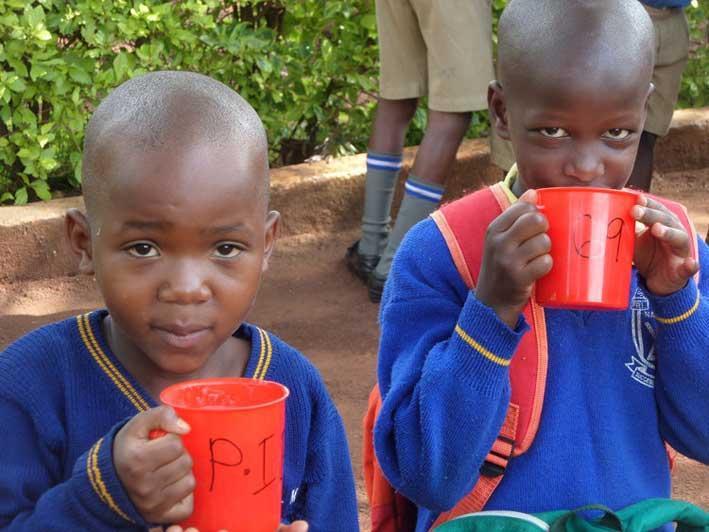
He explains: “As a person I would not find it stimulating enough to build a company based on just financial profits. That would simply not be a good enough driver to make me get up at 7am every morning and work until midnight; I would not be able to do that.”
There is a business continuity strategy behind the charitable concept, one which he hopes will survive him. “Simply put, I think that it is also very profitable to do this. It is not only about the profits but, rather, about building a growing organisation. I need to ensure that this project survives me and that it will be a platform that continues to grow.
“This means that I cannot afford to have any financial inefficiencies, because there will always be forces and people in middle management looking to improve the bottom line, and the A Meal for A Meal project would be a natural cost-cutting target.
“But if I can demonstrate that the project is giving us more interest from customers, that it is a marketing tool, that our customers can use the A Meal for A Meal logo, that it can be used by middle management to sell more meals – then I can rest assured that the project will last longer than me at this company, because its value is recognised.
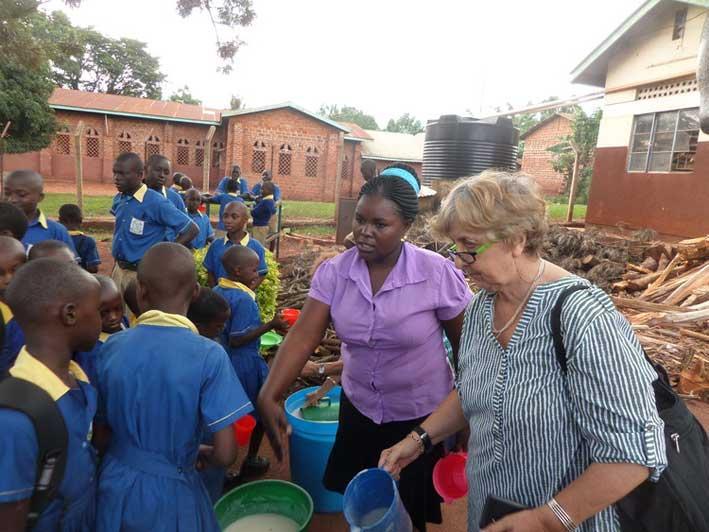
“I have stopped thinking that we as a company should focus on donating every cent to charity. I think what we should do is focus on trying to be a healthy company, trying to be a strong business partner that is commercially sustainable and profitable, because that will ensure the continuity of what we are doing. Our growth as a company at the end of the day will mean that we can feed more people who are in need.
“It is a win-win situation – giving does not necessarily have to mean sacrificing. There is, of course, a profit for us from every meal we serve, and the more money we make the more children we can feed.
“There is a balance that we have achieved which has merged, I believe in a beautiful way, being a commercial company with commercial ambitions with our extremely high ambitions about how much good we can do in Africa and other places. Hopefully this model will survive me and will last many generations.
“At the end of the day, what we have managed to do is to create a project where more underprivileged people can eat with the more money we make, plain and simple. Let’s not waste any food, let’s have an efficient system, let’s talk about what we are doing with what we have saved, and let’s also be sustainable from a carbon footprint perspective.
“I think it’s a great thing to know that we can provide that extra meal not by adding to the carbon footprint by simply producing more food – the Earth does not need that – but instead by redistributing our resources and that is exactly what we are doing.”
Despite the immense good the project is doing, Mr Gillblad is wary of being branded a philanthropist or considered boastful. He takes a far more modest approach: “I simply saw that I could do something very clever by just organising things a bit differently to help solve a very big problem.
“I’m interested in solving problems and inefficiencies, which is what my working life has been about so far, and I when saw that map and I got inspired – I wanted to scratch that excess food off Europe and place it in Africa.”
And that is what he is doing, one meal at a time.
In Mr Gillblad’s view, real tangible solutions to problems such as the one he is addressing cannot be solved by politicians but, rather, by business.
“It is my view that it will never be the politicians who will solve these problems, solutions will have to come from the corporate sphere,” he comments. “When it comes to political strategy, these only last one term and, as such, they have very short horizons. It is simply the nature of how that system is built; it encourages politicians to focus on winning the next election.
“A business, however, is ongoing and you need to make improvements every day because elections are held every day when your customers make their choices. You are on an infinite timeline where you can make profits from current investments 10 or 20 years down the road, and for decades to come.”
Mr Gillblad remarks that he is pleased with the several tens of thousands of meals that have been provided so far through the programme – and how it has been rewarding to have seen the company growing in Malta and how his Maltese colleagues have made this happen.
But still, he adds: “My daily worry and thoughts are with all the children that we have not fed, not the ones that we are feeding. That is what keeps me going. As long as there is one child in the world who does not have a proper meal a day, we still have work to do.
“Our collaboration with SOS Malta has been amazing. It is impressive how they operate, from the chairperson, Claudia Taylor East, on the ground herself handing out food, to how they manage with very few overheads. I am confident that we will expand our collaboration and feed many, many more children.
“Fascinatingly enough, people have asked me how they can support the A Meal for a Meal programme, and I say ‘Just eat our meals’.”
Updates on the unique CSR initiative can be found at: www.romyfoods.com/CSR and at www.amealforameal.com